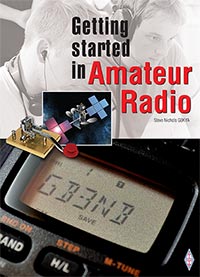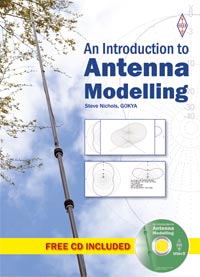I finally finished
my new HF QRP toy and it works a treat. I put my name down for the
latest Mountain Topper Radio (MTR) design from Steve Weber KD1JV a
few months back. Steve only releases a limited number of his designs
each time and I was lucky enough to get one.
 |
| The finished three-bad MTR QRP rig. |
The latest MTR is a
three-band 2.5-3W QRP transceiver that can be built for 40m, 30m and
20/17m. It can even be persuaded to go onto 80m apparently. It is
very advanced with a built-in keyer, memory, attenuator, single
character digital readout, Morse annunciation and much more.
The best thing is it
is tiny – about the size of a pack of playing cards.
I attended the G-QRPconvention last October and was inspired by some of the tiny QRP
radios people had there, especially Colin
M1BUU who had some rigs that were real works of art.
I held fire on
building it for a couple of months to see if there were any changes
to the instructions. As it was, Steve had to send out another chip as
the original keying algorithm wasn't quite right.
So, with new chip in
one hand and a very fine-tipped temperature-controlled soldering iron
in the other I tentatively set about the build.
First off, this
isn't one for beginners. It is about 90% SMD and the parts are tiny.
Having learned my lesson the hard way I used a large baking tray to
work on in an effort to stop parts flying off, never to be seen
again. As it was I did loose one part for a few hours but eventually
found it in the carpet. With components just 1-2mm in length this kit
is not to be sneezed at – or over!
I took my time,
spreading the build over five three-hour sessions. Apart from putting
three capacitors in the wrong place (which I was able to retrieve) it
went together quite well. On power up it received first time and I
was able to go through the set-up routines with no bother, using a PC
with PSK31 software to set up the oscillator on 10MHz as instructed.
But then it wouldn't
transmit any RF. I eventually tracked it down to a poor joint on the
L18 output toroid – I hadn't got all the enamel off one of the
leads.
 |
| Bear in mind that this board is only 8.5cm wide. |
Adopting the “if
it ain't broke don't fix it” methodology I'm happy with 3W!
Incidentally, when I
took the photograph of the board I noticed that there was a stray
filament of wire laying on a chip. This must have come from when I
was doing the final wiring. I've now removed it, but it goes to show
how a digital camera can be a Godsend with SMD construction.
So does it work? Oh
yes!
My first outing on
40m at home brought back Gunner OZ6NF in Copenhagen who gave me a
559. Next up was Pascal F5UQE in Lille who gave me 589.
I think this is an
excellent fun radio and ideal for backpacking – if only we had some
mountains around. The nearest big hill is 150 miles away from here!
So how do you get
your hands on a Steve Weber designed radio? First you have to join
the “AT_Sprint” Yahoo Group. That's where Steve announces that he
is going to make a quantity of kits. Secondly, when he announces that
this is going to happen you send him an email. If you are then lucky
you will be selected and have to pay via PayPal. Good luck – the
interest level is very high.
Overall, it is a
fantastic design and well worth making.
73 de Steve G0KYA
Update 3/9/14; Tried it out on 20m today and worked Switzerland, Spain and Belarus. Went back to 40m and worked Moscow. Sensitivity is pretty good - not quite an Icom 756 Pro3, but look how big it is! Lots of fun.
Update 3/9/14; Tried it out on 20m today and worked Switzerland, Spain and Belarus. Went back to 40m and worked Moscow. Sensitivity is pretty good - not quite an Icom 756 Pro3, but look how big it is! Lots of fun.













No comments:
Post a Comment